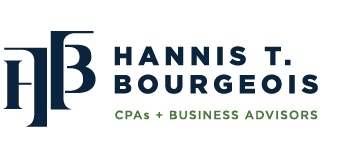Navigating the One Big Beautiful Bill: What It Means for Businesses
On July 4, President Trump signed the One Big Beautiful Bill (OBBB) into law, introducing a wide range of changes to the tax code and various government spending initiatives. To help make sense of what this means for you, we’ll be breaking down the key provisions and their implications in a series of blog posts.
In this post, we’ll take a closer look at how the OBBB affects businesses — from updates to corporate tax provisions and bonus depreciation rules, to new incentives for small business investment and changes to payroll tax treatment. Whether you’re a sole proprietor, S corp, or large enterprise, these reforms could significantly impact your tax planning, compliance strategy, and overall financial operations.
- Qualified Business Income (QBI) Deduction Permanently Extended: The Bill makes the 20% QBI deduction under IRC §199A permanent, providing long-term tax relief for owners of sole proprietorships, partnerships, LLCs, and S corporations. The bill also raises income thresholds for phaseouts, introduces a minimum deduction of up to $400 for those with at least $1,000 in qualifying income, and includes modifications that expand eligibility and clarify qualification rules. While some limits still apply to specified service businesses, higher phase-in thresholds may offer additional relief to a broader range of small business owners.
- Restoration of 100% Bonus Depreciation: Qualified property placed in service after January 19, 2025, is again eligible for 100% bonus depreciation, now made permanent. This includes assets with recovery periods up to 20 years, like machinery or interior improvements to nonresidential buildings — allowing faster cost recovery and improved cash flow.
- Instant R&D Deductions Restored: U.S. research expenditures, previously required to be amortized over five years, can now be deducted in the year paid. Companies averaging $31 million or less in gross receipts may elect a catch-up deduction for 2022-2024; larger firms may accelerate the remaining amortization over one or two years.
- Higher Ceiling for Section §179 Expensing: 179 lets businesses deduct the cost of most tangible equipment (and certain building improvements) instead of depreciating it over time. OBBB raises the annual dollar cap to $2.5 million and begins phasing the benefit out when total qualifying purchases top $4 million in a year. Both thresholds will adjust for inflation going forward.
- Business Interest Deductions: Since 2022, many companies could deduct net interest only up to 30% of EBIT (earnings before interest and taxes). Starting with the 2025 tax years, the cap reverts to 30% of EBITDA, adding back depreciation and amortization, which typically allows a larger deduction. The Bill also tweaks the rules so that interest on financing for certain trailers and campers now qualifies for deduction under the limitation.
- Qualified Small Business Stock (QSBS) Exclusion Expansion: The Bill increases the tax benefits for investors in qualified small businesses by expanding the Section 1202 exclusion. For stock acquired after the bill’s enactment and held for at least four years, 75% of capital gains may be excluded from taxable income. If held for five years or more, the exclusion rises to 100%. This change enhances the appeal of investing in startups and early-stage companies, particularly in high-growth sectors.
- Opportunity Zones Renewed & QROFs Introduced: The Opportunity Zone program is renewed indefinitely, with zones set to be re-designated every ten years. There’s also a narrower definition of “low-income community,” and a new “Qualified Rural Opportunity Fund” (QROF) that offers investors more substantial tax benefits. QROFs offer a rolling 30% basis step-up after 5 years (compared to 10% for others) and a reduced “substantial improvement” requirement, which reduces the amount that must be reinvested in property improvements.
- Excess Business Loss Cap Made Permanent: The limitation on excess business losses of noncorporate taxpayers is now permanent. It was originally scheduled to expire after 2028.
- Changes to International Tax Provisions: Significant adjustments have been made to international tax provisions. The deduction rates for foreign-derived intangible income (FDII) and global intangible low-taxed income (GILTI) have been updated starting after 2025. The FDII deduction rate is reduced to 33.34% (previously 37.5%), and the GILTI deduction rate is lowered to 40% (previously 50%). Additionally, the Base Erosion and Anti-abuse Tax (BEAT) minimum tax rate will be adjusted to 10.5% (previously scheduled to rise to 12.5% after 2025).
- Employer Credit for FMLA Pay Made Permanent: The temporary employer credit for paid family and medical leave is made permanent, preserving a credit of up to 25% of wages paid during qualifying leave.
- Expanded Employer-Provided Childcare Credit: The credit rate on qualified child-care expenses jumps from 25% to 40%, and the annual dollar cap increases to $500,000 ($600,000 for certain small employers).
As you can see, the One Big Beautiful Bill introduces a wide range of changes that could significantly impact how your business operates — from expanded deductions and accelerated depreciation to the return of certain limitations and new compliance requirements. While some provisions offer immediate financial benefits, others call for strategic planning to fully leverage their potential and avoid costly surprises.
HTB’s tax professionals are here to help you make the most of these opportunities while staying compliant with IRS and state rules. We’ll continue to share insights on the newly enacted OBBB in the coming weeks, so stay tuned. In the meantime, please don’t hesitate to reach out with any specific questions — we’re here to help you navigate these changes with confidence.

